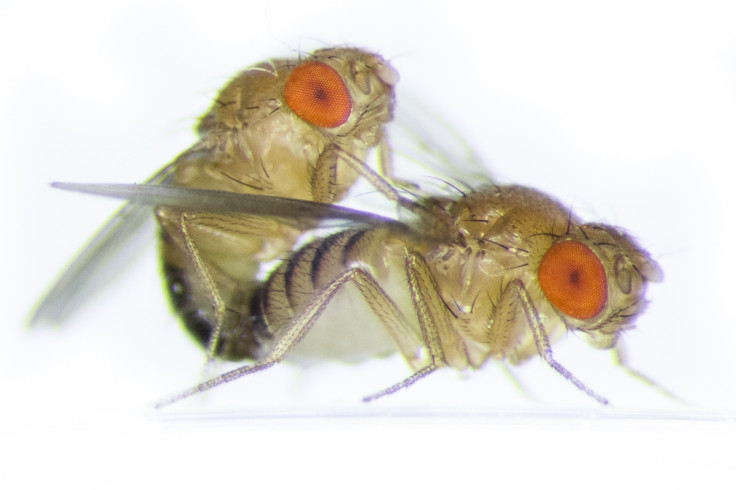Flies Living With Brothers are Gentle Lovers, Scientists Discover

Flies that live with their brothers are much more gentle lovers than their unrelated counterparts, scientists have discovered.
Researchers from Oxford University's Department of Zoology looked at the courting habits and methods of flies, where the male lived with their brothers or with unrelated male flies.
Published in the journal Nature, findings showed that unrelated males compete more fiercely for female attention and cause more harm during courting. This results in shorter lifespans for males and reduced fertility for females.
The team placed trios of virgin males with single virgin females and allowed them to feed and mate freely. They then compared the behaviour and lifespan according to group relatedness of the males – three full brothers, one set of related plus an unrelated fly, and three unrelated flies.
Study leader Tommaso Pizzari said that in with three brothers, the flies were more relaxed and spent less time harassing the female for sex.
However, he also found that the group where there was one unrelated male fly, he had twice as many offspring than the brothers put together, but overall produced a small proportion of young.
"Their more relaxed attitude to mating results in fewer fights and they also harm the females less as their courting is not so aggressive. When unrelated flies are together, the females are constantly being pestered for sex, which may leave them little time to eat or rest."
Study leader Tommaso Pizzari
"This is a classic example of sexual conflict where the selfish interests of individual males can work against the wider interests of the group. In this case, the female flies had shorter reproductive lifetimes and produced fewer offspring overall when unrelated males were constantly harassing them.
"The related flies in the group will be more complacent about sex since they can be fairly confident that their brothers will be passing along genetic information anyway, meaning less competition for the renegade. The aggressive sexual behaviour of this outsider will result in more fights and lower lifespans for the group as a whole, but will benefit the individual as he will father more offspring."
Findings also showed that the reduced lifespan and reproductive abilities was most prominent in the group where all three male flies were unrelated to each other. In this group, the selfish incentive to father as many offspring as possible damaged the overall health of the group.
Pizzari said: "In large populations brothers don't need to compete so much with each other for female attention since their genes will get passed on if their sibling mates successfully anyway.
"Their more relaxed attitude to mating results in fewer fights and they also harm the females less as their courting is not so aggressive. When unrelated flies are together, the females are constantly being pestered for sex, which may leave them little time to eat or rest."
© Copyright IBTimes 2024. All rights reserved.






